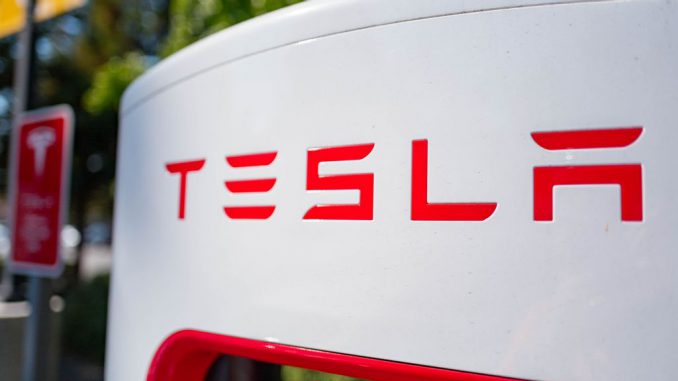
Tesla, Inc. (NASDAQ:TSLA) shares fell below the psychological support level of $200 on Monday before reclaiming the levels in the very next session. Notwithstanding Tuesday’s advance, the stock is trading well off its intraday high of $299.29 on July 19.
A bearish analyst weighed in on a Bloomberg story shared on X, formerly Twitter, that said Tesla shed one-fifth of its value in less than two weeks on worries over electric vehicle demand weakening.

What Happened: The last time Tesla missed a consensus estimate was in the second quarter of 2022 and the miss was only a fraction of the shortfall the company reported for the third quarter of 2023, said GLJ Research’s Gordon Johnson. Over the next six months, the stock fell about 50% as the “smart money” exited, he said.
“It’s not weak demand. It’s poor results… that are getting worse,” he added.
Smart money refers to investments made by well-informed investors, primarily institutional investors. Tesla has a relatively high institutional ownership, which accounts for about 42.74% of the total outstanding shares. If these investors, hit the exit button, either partly or wholly, the stock could come under pressure.
The last time $TSLA missed Consensus ests. by a fraction of what they did in 3Q23 (i.e., when they reported 2Q22 numbers last year), over the next 6 months the stock fell ~50% as the “smart money” exited. It’s not weak demand. It’s poor results… that are getting worse. https://t.co/6YqT1oui1f
— Gordon Johnson (@GordonJohnson19) October 31, 2023

Why It’s Important: Johnson’s claims should be taken with a pinch of salt as the second half of 2022 was brutal not only for Tesla stock. Shares of almost all mega-cap names went into a tailspin as monetary policy tightening by the global central banks and galloping inflation left consumers with very little disposable income to splurge on discretionary items such as cars.
Lingering supply chain pressures as the world emerged from the impact of the COVID-19 pandemic also weighed down on production.
That said, Tesla’s current predicament is partly its own making. The successive price cuts implemented by the company since the start of the year have hurt margins. This has prompted even the bullish analysts to question the rationale behind the moves.
Management commentary, especially that from CEO Elon Musk, has stoked the fire rather than quench it. The billionaire’s harping over the economic conditions and a lack of clarity on the timeline for margin inflection has not gone down well with investors.
In the most recent earnings call, Musk hinted at a tough ramp-up for Tesla’s much-awaited Cybertruck.
Tesla ended Tuesday’s session up 1.76% at $200.84. according to Zenger News Pro data.
Produced in association with Benzinga
